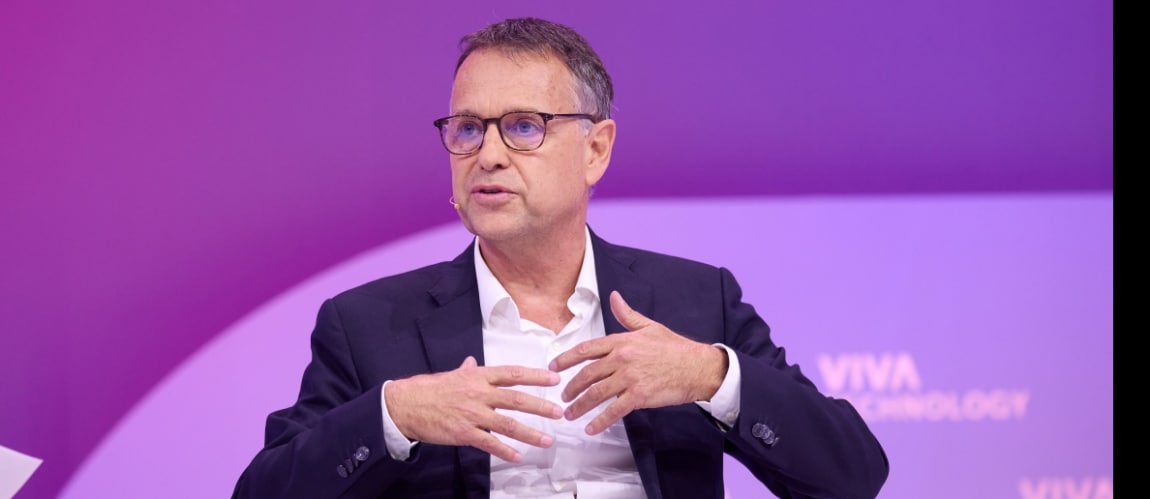Artificial intelligence is making rapid inroads into the financial sector. While it is driving significant changes in operational practices and enhancing performance expectations, it is also redefining the fundamentals of customer relations. According to Renaud Dumora, technology cannot fully replace humans, but the two can complement each other in a highly beneficial way. Provided that an ethical framework is established and a fundamental principle is cultivated: trust.
A favourable terrain for AI
The financial industry, including banking, insurance and asset management, has long relied on an abundance of data and decision-making processes based on statistical and econometric models. In other words, a favourable terrain for AI, whether for risk analysis, personalisation of offers or the automation of low value-added tasks. BNP Paribas is adopting a determined and disciplined strategic approach. Renaud Dumora notes: “We are just starting out. AI's influence is already evident in the way we code, serve customers, work and communicate, although it is not yet widespread.”
AI and responsiveness
According to Renaud Dumora, one of the reasons for the surge in the use of artificial intelligence is its responsiveness. He provides a use case in the specific area of smartphone insurance: “The telephone has become a vital item for everyone; it's almost an extension of who you are. When an issue occurs, customers expect a quick solution — meaning an almost instant response from their insurer. This is typically a situation where AI can really make a difference.” Thanks to automated diagnostics and recognition of common issues, the response time can be less than five seconds. The efficiency is remarkable. But is this enough to justify AI’s widespread application in various fields of finance? While AI is excellent at handling emergencies, it soon reaches its limits when it comes to decisions with strong patrimonial or emotional impacts, such as retirement planning or investing in a family project.
“Investing is not just a financial transaction. It is a decision for a life project”.
Investment: a highly personal act that requires trust and transparency
“Investing is a forward-looking act for individuals and, sometimes, their families. It is not just a financial transaction. It is a decision for a life project”. According to the Deputy Chief Operating Officer leading the IPS division, human-AI hybridisation is essential in these key moments because customers are not only seeking a rate of return, a certain level of risk and an asset allocation, but also a listening ear, vision and personalised support for their personal life projects. All of this must take place within an environment of trust.
This requirement calls for three prerequisites. Firstly, data security: customers need reassurance that the most sensitive information about their personal and/or family situation is protected against any intrusion or risk of a data breach. Next, transparent decision making: if AI recommends an action, it still needs to be explained. “There is a balance to be struck between the complexity of the models, which are increasingly holistic, precise and sophisticated, and the clarity of the explanations, in other words, the educational approach that we can provide,” he emphasises. Finally, there is the need for emotional understanding. Devoid of any consciousness, an algorithm fails to grasp the nuances of personal and cultural contexts and situations where questions are as much about emotion as reason.
“Real trust comes from the right combination of artificial intelligence and human intelligence”.
AI + humans: the future for responsible finance
“Real trust,” he says, “comes from the right combination of artificial intelligence and human intelligence.” AI contributes speed, precision and computing power. Humans, through their consciousness, bring emotional intelligence, empathy, and the ability to perceive and understand beyond numbers, to give meaning beyond words, and read between the lines. In an era where interfaces sometimes replace human contact, BNP Paribas has opted for a hybrid model. “Our automated processes must incorporate safeguards: customers must be able to speak to a real person at any time if they wish. We must maintain this connection,” adds Renaud Dumora. Empathy cannot be delegated to a machine.
His intuition is clear: “The real challenge is not to make AI increasingly powerful, but rather to find a balance with humans to preserve what machines cannot simulate: attention, understanding and relationships.”






